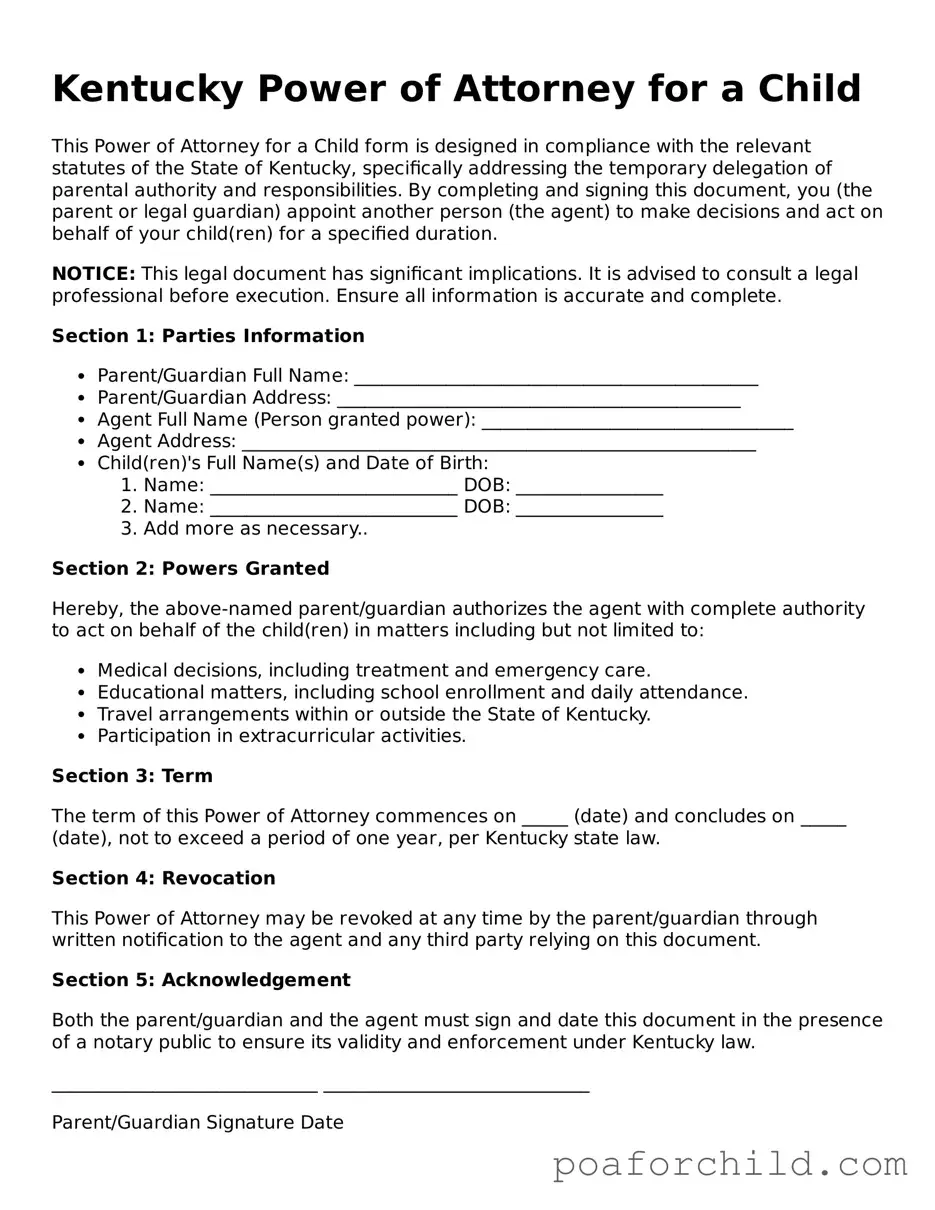Detailed Guide for Using Kentucky Power of Attorney for a Child
Filling out the Kentucky Power of Attorney for a Child form is a critical step for caregivers seeking legal authority to make decisions for a child in the absence of their parents. This document ensures that a child's daily needs, education, and healthcare can be managed by someone the parents trust. Understanding the steps to complete this form accurately is essential for a smooth legal process. Here's how to fill out the form:
- Start by entering the date the power of attorney will become effective at the top of the form.
- On the first line, fill in the full legal names of the parent(s) or current legal guardian(s) granting the power of attorney.
- In the next section, write the full legal name of the person (the agent) who will be granted the power of attorney to make decisions for the child.
- Specify the child's full legal name, date of birth, and social security number in the appropriate fields.
- Clearly list the powers being granted to the agent. These can include decisions related to the child's education, healthcare, and other activities of daily living.
- If there are specific powers not granted or limitations to the agent's authority, ensure these are detailed in the space provided.
- Indicate the start and end dates for the power of attorney. If it's meant to be open-ended, specify the conditions under which it will terminate.
- Both the granting parents/guardians and the designated agent must provide their signatures in the designated area. This typically needs to be done in the presence of a notary public.
- Have the document notarized. This usually involves signing the document in front of a notary public, who will then seal or stamp it to validate the signatures.
- Finally, make copies of the completed and notarized document. Provide one to the agent, keep one for your records, and consider giving a copy to the child's school and healthcare providers, if applicable.
With these steps, you can complete the Kentucky Power of Attorney for a Child form confidently, ensuring the chosen agent has legal authority to make necessary decisions for the child's well-being. Remember, laws can vary by state, so it's important to check any additional requirements specific to Kentucky or consult a legal professional if you have questions.
